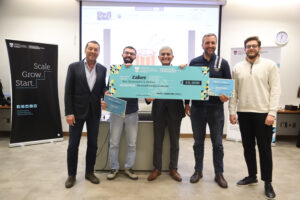We live in changing times, with a transforming dynamic in the workplace. Skillsets required for the future will mainly revolve around technology and Artificial Intelligence (AI). Yet, female integration in the tech sphere has been lagging, as per numerous reports. An evident gender gap exists in STEM industries, which has prompted experts to push for the inclusion of women in the startup ecosystem and especially, the realm of technology.
In Lebanon, there has been a reported increase in the diversity and equality seen amongst Lebanese entrepreneurs. More and more women are founding companies specialized in education, medicine, data analytics, FinTech, engineering, tech and others. However, statistics by World Economic Forum in the Global Gender Gap Report 2018 shows that Lebanon’s global gender gap ranked 136 out of 149 countries in economic participation and opportunity in 2018.
As indicated in the Global Gender Gap Report, the gender gap remains outsized in economic participation and opportunity. On a global scale, only 58% of this gap has been closed, with minimal progress achieved since 2017, with 19 countries mainly from the MENA region that have yet to close over 50% of their existent gender gap.
Nonetheless, with the rapid transformations happening in the present and future workforce, part of this analysis reviewed the gender gap particularly in AI – a significantly demanded skill of the future in technological businesses. As a result, the World Economic Forum collaborated with LinkedIn, to discover that female AI professionals only compose of 22% of the total global specialists on their platform, compared to 78% who are male. The results of the report reflected a low incorporation of females within the candidate profiles database, even in countries and industries with fairly high make-up of women within their base of IT talent.
Exposing a substantial missed opportunity in a significant specialization is one part of the story, countered with the already scarce supply of qualified professionals in this domain, especially in the MENA region. The outcomes of this finding are inclusive and require vital action.
As technology and AI progressively advance and grow to become a vital skillset, both women and men need to hone their skills to be relevant and competitive in the future workplace.




